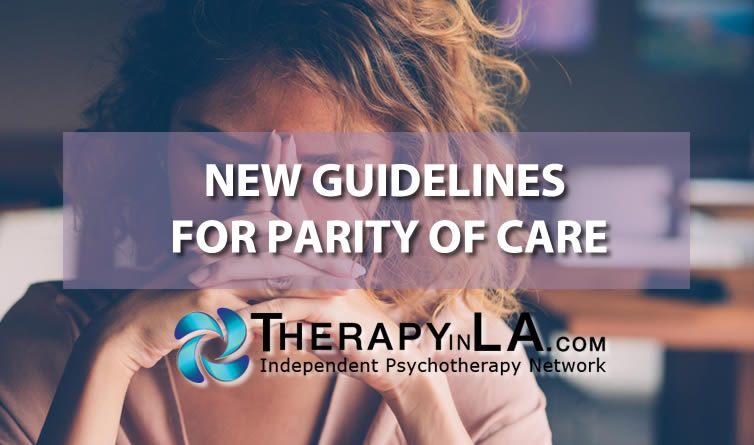NEW GUIDELINES FOR PARITY OF CARE
NEW GUIDELINES FOR PARITY OF CARE
A recent class action lawsuit against the country’s largest mental health insurer (United Behavioral Health) has produced a ruling with clear cut principles of care that make mental health coverage on par with medical health coverage (known as “parity”; Ken Pope: 8 Principles of Accepted Standards of Care). See the previous blog for the cases that prompted the lawsuit. Earlier blogs have discussed a lack of adequate mental health services by Kaiser Permanente in Northern California, as well as a recent letter by a psychiatrist about managed care reducing his work to medication management.
The court ruled that:
- Treatment must address an individual’s “underlying condition” and not be “limited to alleviation of current symptoms.”
- An individual’s treatment must address mental health, substance use, and medical conditions as they often co-occur, and take into account the interactions of these issues.
- Therapy for mental health and substance use issues should be at the “least intensive and restrictive level of care that is safe and effective.”
- If there is uncertainty about the level of care needed, a professional should seek a higher level of care to be cautious and safe.
- Services included should include efforts to help a client “maintain his functioning or prevent deterioration.”
- The length of therapy depends on the individual needs of the client, not on pre-determined limits on the duration of therapy.
- Children and adolescents have unique needs that must be taken into account in making treatment decisions.
- Assessing a client’s needed care should be made on the basis of a “multidimensional assessment that takes into account a wide variety of information about the patient.”
These principles upend decades of “medical necessity” for psychotherapy being defined by restrictive review criteria, such as a limited number of sessions, a limited frequency of sessions, a severe focus on reducing acute symptoms only, a reliance on medications, and terminating therapy to move a client into support services in the community ASAP. As a previous provider in such systems, much energy was spent on advocating for a client’s therapy needs, seeking reviews of treatment, and appealing limitations to therapy. Sadly, many clients are unaware of these restrictions, and are not prepared to advocate for their own care so that their employers will apply pressure to insurance companies that enforce such limited care. We can hope that the guidelines above will help create genuine parity so that mental health care will be equivalent to medical care.
Alan M. Solomon, Ph.D. is a clinical psychologist in private practice in Torrance, CA. A member of the Independent Psychotherapy Network, he can be reached at 310 539-2772 or dralanms@gmail.com
Copyright 2019 by Alan M. Solomon, Ph.D.

